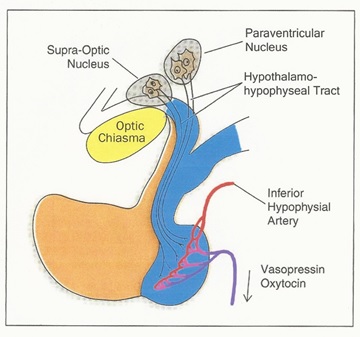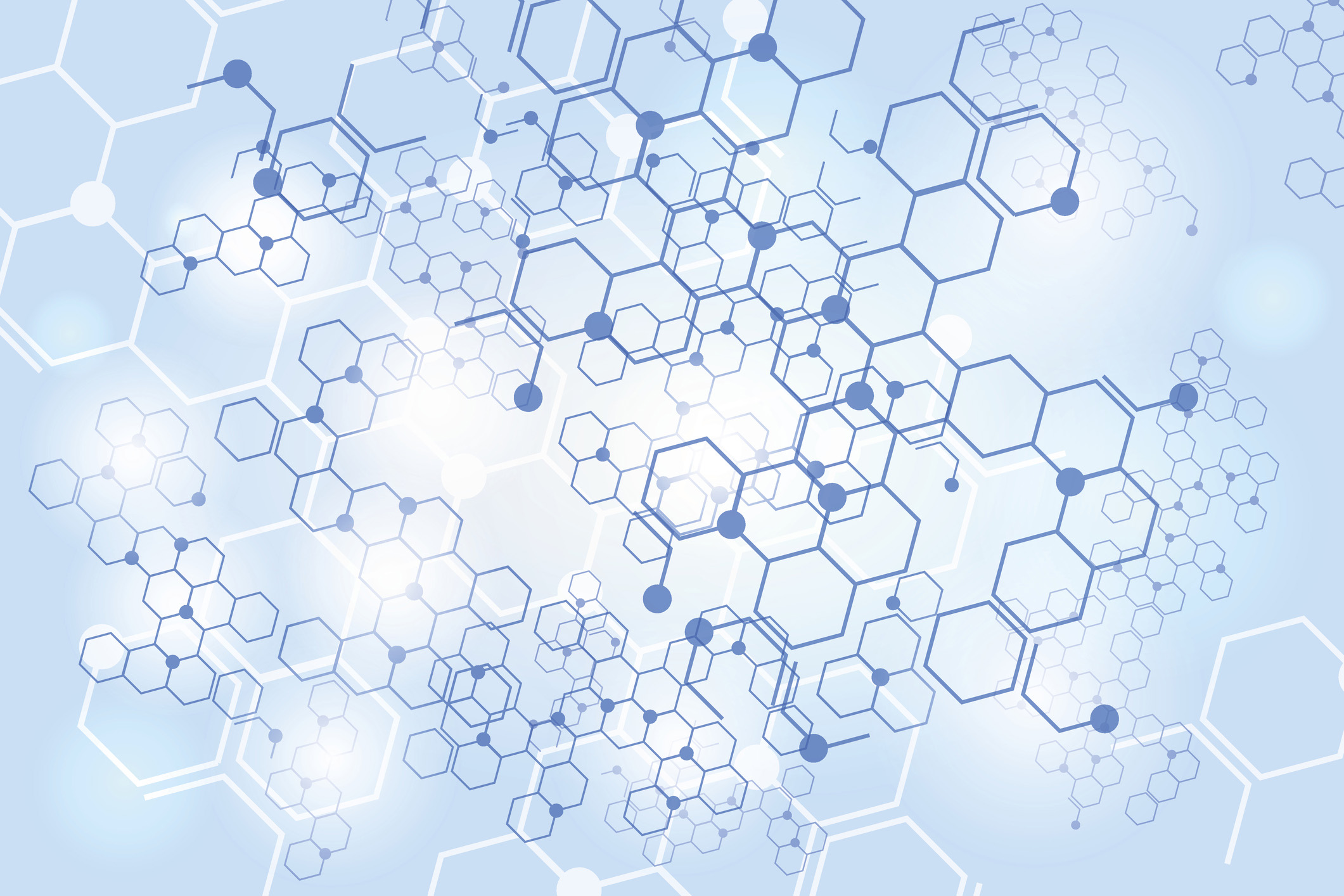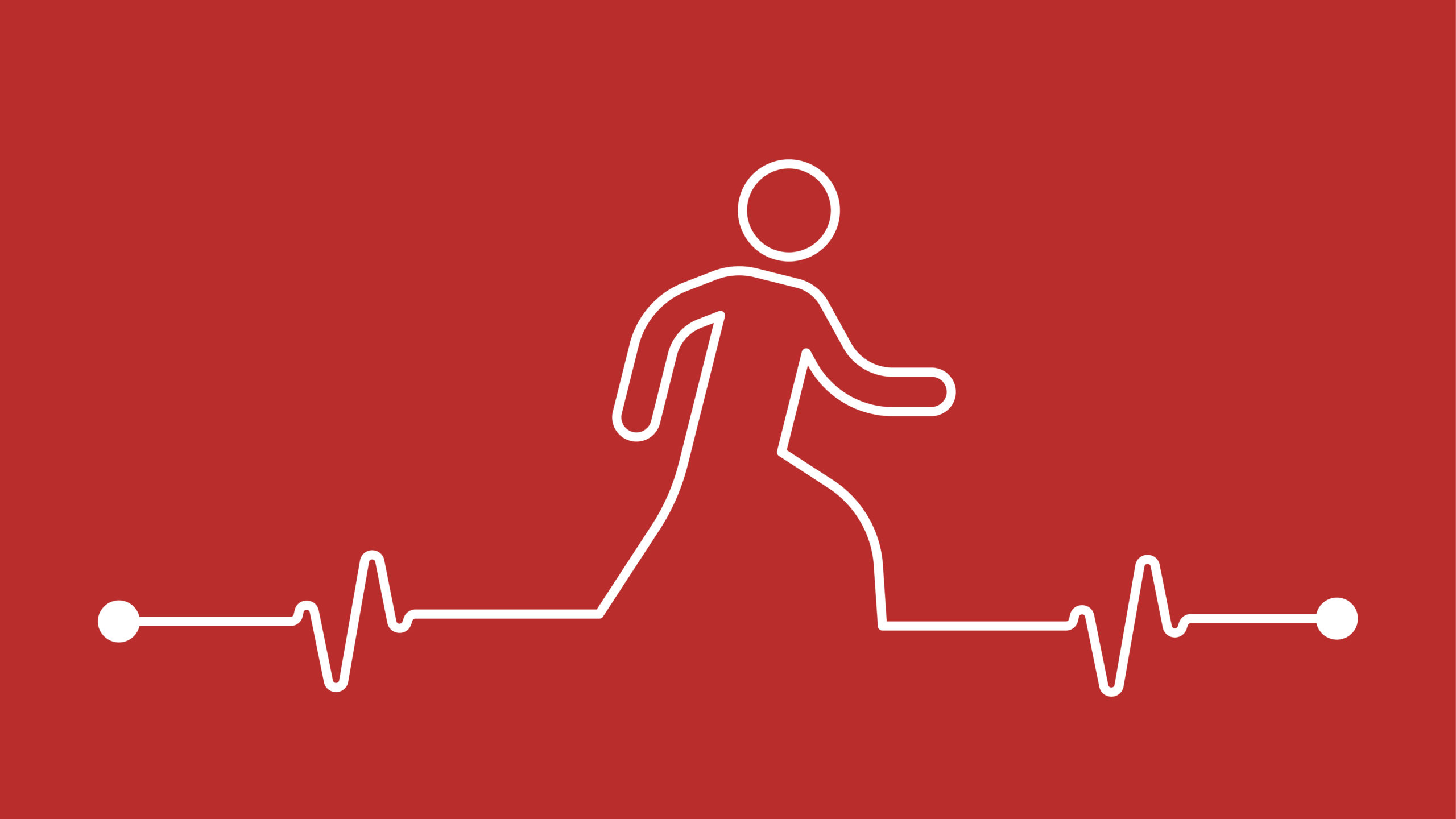
Vasopressin, a multi-talented hormone
November 29th, 2016Vasopressin, a multi-talented hormone
By Dr. Richard Lippman
Mark had a medical problem, which he embarrassingly referred to as a ‘senior slump,’ but he refused to visit a doctor because he considered them to be quacks. Thus, he continued to suffer poor erections despite self-dosing with copious amounts of Viagra® and Cialis.
Eventually, Mark’s wife convinced him to see me and I meticulously questioned and examined him. Mark’s blood pressure was low and he was dehydrated. He urinated frequently at night. I eventually learned that Mark suffered a three centimeter laceration of a finger due to an accident with a power mower, and unexpectedly bled profusely from what appeared to be a minor injury. His blood simply would not coagulate. Mark was often thirsty at night, and felt compelled to urinate frequently. Worse still, he had memory problems and complained about not ‘thinking straight’ anymore. In my office, his blood pressure (BP) measured 95 over 60—which is fine for a highly trained athlete, but a bit low for a deconditioned 47 year-old man. Along with low BP, he felt that he had lost energy compared to his younger self.
Antiaging medicine to the rescue
Both vasopressin (ADH) and oxytocin are hormones made in parvoventricular and supraoptic nuclei cells in the hypothalamus, a small gland located in the brain (Fig. 1). Both hormones are transported inside axons, long nerve endings of the neurons, to the posterior lobe of the pituitary gland where they are secreted into the bloodstream. (1) Vasopressin is essential for maintaining normal blood pressure, and insuring a sufficient amount of blood in an erect penis or an aroused clitoris. In his aging body, Mark appeared to be deficient in vasopressin as well as other hormones such as thyroid and oxytocin. I reasoned that he was probably lacking oxytocin since the same cells in the hypothalamus produce both vasopressin and oxytocin, and a deficiency of one usually means a deficiency of the other.
My meticulous examination revealed the following signs and symptoms of hypothyroidism: loss of the outer third of the eyebrow; swollen eyelids; dry, thick, brittle hair; swollen lips and tongue; dry, rough skin; cold hands and feet; excessive laxity of the fingers; brittle, slow-growing nails; constipation and abdominal bloating; thick, swollen calves and especially ankles; sluggish and slow thinking and moving; attention deficit; bradycardia and faint heart sounds; and slow Achilles tendon reflexes (2).
I recommended that Mark start consuming 30 mg Armour® thyroid every morning without any caffeine. According to Dr. Thierry Hertoghe, caffeine interferes with Armour’s action (3). I further recommended that he add 10 units (one spray each) of vasopressin (Vaso-Pro™) and one 10 IU spray of oxytocin (Oxy-Pro™) at bedtime.
I referred Mark to a well-known urologist for a digital rectal exam in order to ascertain if Mark’s frequent bathroom visits might be caused by BPH (benign prostate hyperplasia or enlarged prostate gland). BPH is an all-too-common problem in older men who produce excessive amounts of the essentially female hormone estradiol, without balancing it with natural progesterone (Progesterone-Pro™).
His urologist reported that Mark’s prostate was slightly enlarged but shouldn’t cause problems for many years to come. Thus, Mark began consuming three vital and deficient hormones (Armour®, vasopressin and oxytocin) daily.
Two months later there is energy and sparkle
Two months after our original meeting, Mark entered my office with energy in his step and a sparkle in his eye. He was no longer bothered by his former symptoms, and he offered me his profound thanks. I thanked him in return for being such a good patient.
Aftermath
Most middle-aged or older people should maintain their aging bodies just as they maintain their aging cars. This was certainly the case with Mark, who only needed a little confidence in a competent antiaging-trained physician, who could readily diagnose a patient and arrive at needed remedies.
In addition to the vasopressin and oxytocin, high on the list of needed remedies was Armour® thyroid, which is lacking in many older people–especially women–for reasons unknown. Thyroid has long been known to be deficient in aging populations. According to a 1957 article in the Journal of the American Medical Association, 40% of American women living in the Mid-West have ongoing and undiagnosed thyroid deficiencies. (4) Unfortunately, conventional medical doctors rely entirely on thyroid blood tests, overlooking the hypothyroid signs and symptoms presented by their patients. One should not rely on what I believe are erroneous laboratory reference values for thyroid hormone blood levels, and fail to treat many card-carrying hypothyroid patients. Another little-used remedy is to employ the Russian thyroid bio-peptides, which can often reactivate failing thyroids.
Other benefits of vasopressin
Vasopressin has other benefits when supplemented. Patients can now reverse aging of their faces and hands by having their dermatologist apply DermaPen™ therapy. (5) This therapy is a type of mesotherapy, which has been employed in Europe for many years. It literally turns back the clock on patients’ faces and hands with the help of vasopressin (Vaso-Pro™) and other hormones. In the skin on one’s hands and face, vasopressin (Vaso-Pro™) prevents dehydration, which is responsible in part for fine lines and wrinkles.
Before employing the Dermapen™, a dermatologist applies a numbing cream (lidocaine) to the face and hands and waits an hour. Then, the physician will move a DermaPen™ pen over the surface of the skin. This electric pen contains 40 or 50 tiny needles that are often adjusted to penetrate the skin to a depth of 0.50 mm. On sensitive tissues such as the forehead and eyelids, the depth of the needles is set to only 0.25 millimeters. This pen punctures and opens the skin down to the dermal layers and allows improved blood flow to underlying tissues. During this process, slight bleeding and short-term inflammation will occur. The body’s own stem cells are attracted to the site of injury, which, in turn, encourages new collagen growth.
To encourage the good formation of collagen, vitamin C cream and hormones such as vasopressin and sex hormones should be applied to the pen-treated areas immediately after, according to hormone expert Dr. Thierry Hertoghe. (3)
After a half dozen or more treatments spaced at least four weeks apart, the face and hands become plumper and softer due to better collagen production. If you look at the back of a 70-year-old’s hand, you will notice that the collagen filling material has nearly vanished. This effect is due to aging– and by-and-large, only tendons remain with unsightly blue veins running across the surface of the tendons. Also, the lack of collagen filling material leaves the skin of the hands and sometimes the face translucent and pale.
These are the signs of advanced aging we all face if we do not accept and take advantage of the latest techniques in antiaging medicine.
Dr. Hertoghe explains the advantages of vasopressin
Dr. Thierry Hertoghe, head of the Hertoghe School of Medicine, recently spoke in London, England (3) about the advantages of supplemental vasopressin. He said that vasopressin (Vaso-Pro™) would improve kidney health. He stated emphatically that signs and symptoms of a vasopressin deficiency are deep and sunken eyes, sharp wrinkles, soft eyeballs, poor memory and dehydration folds on the upper eyelids. In his practice in Belgium, he recommends vasopressin to improve sleep by approximately 45 minutes per night. He stated that vasopressin (Vaso-Pro™) combined with oxytocin (Oxy-Pro™) is often an effective treatment for schizophrenia.
In reference to aging, Dr. Hertoghe claims that vasopressin will increase one’s chance of survival by a factor of four. He also advised that a lack of vasopressin might be a cause of short-term memory loss and low electrolytes, such as sodium. Another cause may be lack of dopamine (which can be improved with deprenyl).
When I questioned prominent English doctors practicing in London, few of them appreciated Dr. Hertoghe’s approach. This reminds me of what Winston Churchill said about people not open to accepting new knowledge: “Some people walk along their path in life and stumble upon the truth. Then, they pick themselves up, dust themselves off, and proceed on their way as if nothing had happened!”
On the other hand, many American physicians have taken Dr. Hertoghe far more seriously. I have used many of his recommendations. Consequently, I can confidently state that he has not exaggerated. For example, I have checked my progress in reversing my aging by doing numerous medical tests during the last four years. Recently, I took a stress-EKG test at the local hospital’s cardiology department. A technician hooked me up with electrodes on my chest, and I ran for five minutes on a treadmill and rested for five more minutes. My resting BP was 128 over 73, which indicated that I was ‘young-at-heart’ and capable of heavy aerobic exercise. All of my values were so exceptional that the cardiotech asked me if a mistake had been made when I wrote down that I was 70 years old. He said that I scored like a person twenty or thirty years younger.

Figure 1
The hypothalamus showing where the release of oxytocin and vasopressin takes place
References
- Hertoghe, T. 2012, Passion, Sex, and Long Life, International Medical Books, www.imbooks.info. , p. 18.
- Hertoghe, T. 2010, The Hormone Handbook, Vol. 2, International Medical Books, Luxemburg, p. 127.
- Hertoghe, T. Oct. 2014, Anti-Ageing Conference, AACL 2014, London, United Kingdom.
- Jackson, A. S. Hypothyroidism, JAMA, Sept. 1957, 165(2), 121-124.
- dermapen.com








